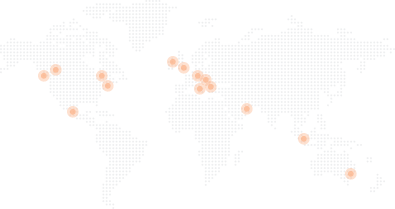In part 2 of our conversation with with Solomon Tesfaye, from tZERO, we continued our discussion about secondary trading of private securities.
Katipult: Regarding investors, what are some of the advantages of secondary trading from an investment perspective for investors?
Solomon Tesfaye: For investors, a number of platforms may increase investor access to the initial investment opportunities within private equity, debt or alternative investments, but lack offering any efficient liquidity optionality for investors to sell their positions to existing or new prospective investors.
Enabling a broader demographic of investors to participate such as retail investors in an investment opportunity by significantly decreasing the minimum check size requirements and utilizing enhanced capital formational tools without providing investors a liquidity solution can potentially lead to burdensome investor relations issues.
Generally these non-institutional investors are not looking for governance or voting rights. For a private company, a broader syndication approach can be attractive from a cost of capital perspective. These investors tend to want liquidity optionality. tZERO, through our broker-dealer subsidiaries, provides tailored private market liquidity solutions ranging from continuous trading to more bespoke managed secondary trading environments.
Introducing secondary trading can potentially contribute to making the investment more attractive by empowering investors with a greater degree of flexibility to sell or buy private positions based on their own timeline while reducing the administrative work for the company or asset’s management team.
Katipult: What risks and challenges should investors be aware of, and are there ways to mitigate some of these risks?
Solomon Tesfaye: From a company or asset perspective, it is important to choose the right type of secondary trading solution and determine who should be granted access to the trading environment.
tZERO works with clients to understand their core objectives and discuss the multiple variables that should be considered ahead of setting up and launching the secondary platform.
There are a wide range of factors that must be considered - composition of existing capital structure, asset type, size, investor domiciles, tax considerations, managed or continuous trading, existing transfer restrictions or right of first refusal that may need to be amended, etc.
From an investor perspective, we require issuers to provide ongoing disclosure so investors are equipped to properly assess the investment. Currently, all tZERO Securities secondary trading clients, at a minimum, provide SEC Rule 15c2-11 disclosure, which is unaudited financials on an annual and semi-annual basis.
Any client’s counsel will be familiar with this type of disclosure, and we find that most of our private market clients have already been providing disclosure that aligns with this requirement. tZERO Securities conducts client business, legal, and financial due diligence.
Investors should carefully review the company's disclosures and conduct their own research before investing.
Katipult: Are there any notable changes or effects on private market valuations?
Solomon Tesfaye: If a client pursues continuous private market trading or is seeking to establish a securities auction, there will be a degree of price discovery. If there is sensitivity related to going through this exercise, a managed secondary facility can be established with a floor price.
Private companies are able to utilize tZERO’s private market secondary trading while still reserving the option to transition to NYSE if and when appropriate.
Katipult: How do you see secondary trading evolving in the future?
Solomon Tesfaye: In the future I believe it will become common practice for prospective investors in a private placement to confirm what type of secondary trading platform will be established post-capital raise, and foresight regarding this topic will be provided in the offering materials.
We are already seeing tZERO ATS secondary trading referenced as a potential liquidity solution provider in capital raise offering material. Some counterparties will pursue maximizing liquidity and making their securities broadly available on the secondary market while others will have a closed ecosystem for select investors to trade amongst one another.
Katipult: Thank you so much for your time, Solomon. Where can people go to find out a little bit more about tZERO?
Solomon Tesfaye: Barry thank you to you and your team for the invite and this discussion. You can reach the tZERO team at sales@tzero.com. Please view the tZERO team as a resource as you assess your private market secondary trading objectives.
Katipult: Great. Thank you so much for your time, Solomon.
